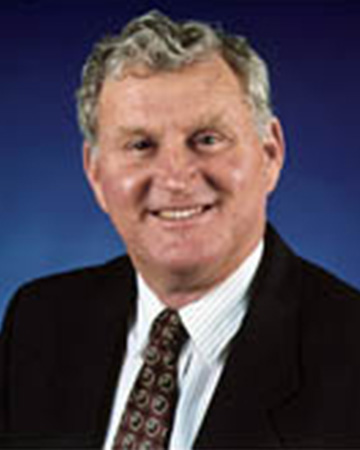All buses to be run on low-sulphur diesel fuel in the future
14/1/99
Transport Minister Murray Criddle confirmed today that most of Perth's new and existing buses would be run on low-sulphur diesel fuel following the findings of an independent study.
An expert reference group set up in May last year to advise on the best fuel for Perth's buses found Euro2 diesel power to be environmentally, operationally and economically superior to natural gas.
Mr Criddle said the switch to lower-emission diesel in the older buses, as well as in the new fleet, is the result of recommendations in the new report now set to become a world benchmark in the gas versus diesel debate.
"The report overwhelmingly endorses the Government's decision to purchase Euro2 diesel-power buses instead of gas-driven technology which has not stood up to detailed scrutiny," Mr Criddle said.
"It is important that people pushing for mass produced gas-powered buses should avail themselves of the findings of this report to gain a more balanced overview.
"The report shows that Euro2 diesel power units are environmentally and economically superior to gas and it would have been folly to opt for anything other than diesel-power which will deliver to Perth commuters ultra-reliable, environmentally-friendly buses," he said.
The Minister said that not only had the group fulfilled the requirements set down in the Terms of Reference, it had produced a comprehensive analysis of available fuels used in a wide range of major public transport systems.
"The report recommends that diesel fuels with a maximum sulphur content of 0.05 per cent be used for Perth's new buses and that oxidation catalysts be used on these vehicles in conjunction with the newer fuel," he said. "We want to take that recommendation a step further by using low sulphur fuel in all of our existing buses and we propose to introduce this as soon as possible.
"While we won't achieve exactly the same emission results on the older buses, we will be achieving emission standards that far exceed those in other parts of Australia and many countries worldwide.
"We are pleased with the results of this independent report which validates our earlier caution regarding the long-term viability of natural gas buses and supports our decision to go with Euro 2 diesel technology for our initial purchases.
"Diesel fuels with a sulphur content of 0.05 per cent, combined with oxidising catalysts, surpass Euro2 emission standards and are superior to natural gas.
"On the basis of this report, the Government has made the best decision for the immediate future," he said.
The Minister said the recommendations would be reviewed in 2003 and in the meantime the Government would continue to monitor the natural gas vehicles it has on the road currently as well as the five natural gas Mercedes Benz buses that will be arriving later this year.
"However, we will continue to monitor all new technology developments that may influence the choices for the remainder of the new bus fleet to be brought into service following the 2003 review ," he said.
Mr Criddle said this would include zero-emission fuel-cell technology currently being developed in Europe.
The Expert Reference Group was convened in May 1998 to provide independent, expert advice on the best fuel for Perth's buses in the long term.
The Terms of Reference for the Group were:
· to examine economic, environmental, operational and service issues associated with both diesel and natural gas fuels for buses in Perth's public transport system;
· to establish the source, authenticity and relevance of information, including laboratory and field test data, operation performance and industry information, in connection with these issues; and -
· to provide independent advice to the Minister for Transport on the most appropriate fuel for Perth's buses in the long term.
The Expert Reference Group comprised Brian Bult, Managing Director of Voith Australia, Kevin Bishop, Manager of Corporate Sales AlintaGas, Dr Phil Morgan, Assistant Director Air Quality Management, Department of Environmental Protection, John Stanley, Environmental Economist,Alan Bray, Managing Director PATH Transit and Greg Martin, Executive Director Metropolitan, Transport.
Twenty-two independent submissions were made to the group which also conducted research into transport companies across Australia and overseas.
Environmental and economic analyses were performed on the major fuels; diesel, LPG and Compressed Natural Gas, as well as other potential fuels of the future.
Brian Bult, the independent Chairman of the ERG will be available for comment upon request.
Media contact: Doug Cunningham 9321 7333



